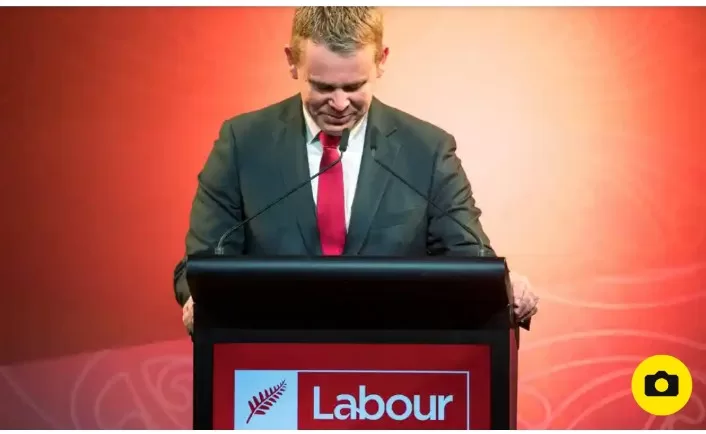New Zealand’s political landscape witnessed a seismic shift as voters emphatically rejected the incumbent Labour government, paving the way for a resurgent National party under the leadership of Christopher Luxon. This stunning electoral upset, aptly described as a “bloodbath” by analysts, ushers in a right-leaning era in the country’s politics.
The election marked a stark contrast to the historic mandate secured by the Labour party just three years ago, during the tenure of Jacinda Ardern. However, economic challenges and the ongoing impact of the Covid-19 pandemic eroded their support. Rising living costs further undermined the government’s standing.
In a triumphant address to his supporters in Auckland, National party leader Christopher Luxon outlined his vision for the nation, promising to tackle the cost of living, restore law and order, and improve healthcare and education. His optimism was palpable as he proclaimed the likelihood of forming the next government in alliance with the libertarian Act party.
On the other side of the political spectrum, the Labour leader, Chris Hipkins, conceded defeat in a gracious manner, acknowledging the night’s challenges. The election marked the end of a six-year Labour rule, encompassing tumultuous events like the Covid-19 pandemic, the Christchurch mosque attacks, and the Whakaari volcano eruption. It also symbolically drew a line under Jacinda Ardern’s political era.
With over 95% of the vote counted, the National party appeared poised to secure 50 seats, while their traditional coalition partner, Act, was set to win 11 seats. The question that lingered was whether they would need to form a coalition with the populist New Zealand First party to reach the crucial 61-seat threshold for governing.
In a moment of political sportsmanship, Luxon expressed gratitude to Hipkins for his service as Prime Minister, acknowledging the challenge of the night for the Labour party.
In Wellington, Hipkins, who assumed leadership of the Labour party in January following Ardern’s unexpected resignation, conceded and congratulated Luxon on his victory. He candidly admitted that Labour was not in a position to form another government and acknowledged the difficult journey they had faced.
The mood of change in New Zealand’s electorate became evident as not only did Labour lose seats to the right but also to smaller left-wing parties like the Green Party and Te Pāti Māori. These parties garnered support from those seeking more action on climate change, transformative social security investments, and improved outcomes for the Maori community.
Opinion polls had earlier hinted at the possibility of the populist minor party, New Zealand First, playing a kingmaker role once again. Consequently, National and Act might need their support when special votes are counted, particularly if Te Pāti Māori secures Maori electorate seats.
This remarkable political transformation signals a significant shift in New Zealand’s political landscape, as the country seeks a new direction amidst economic challenges and evolving societal demands.




